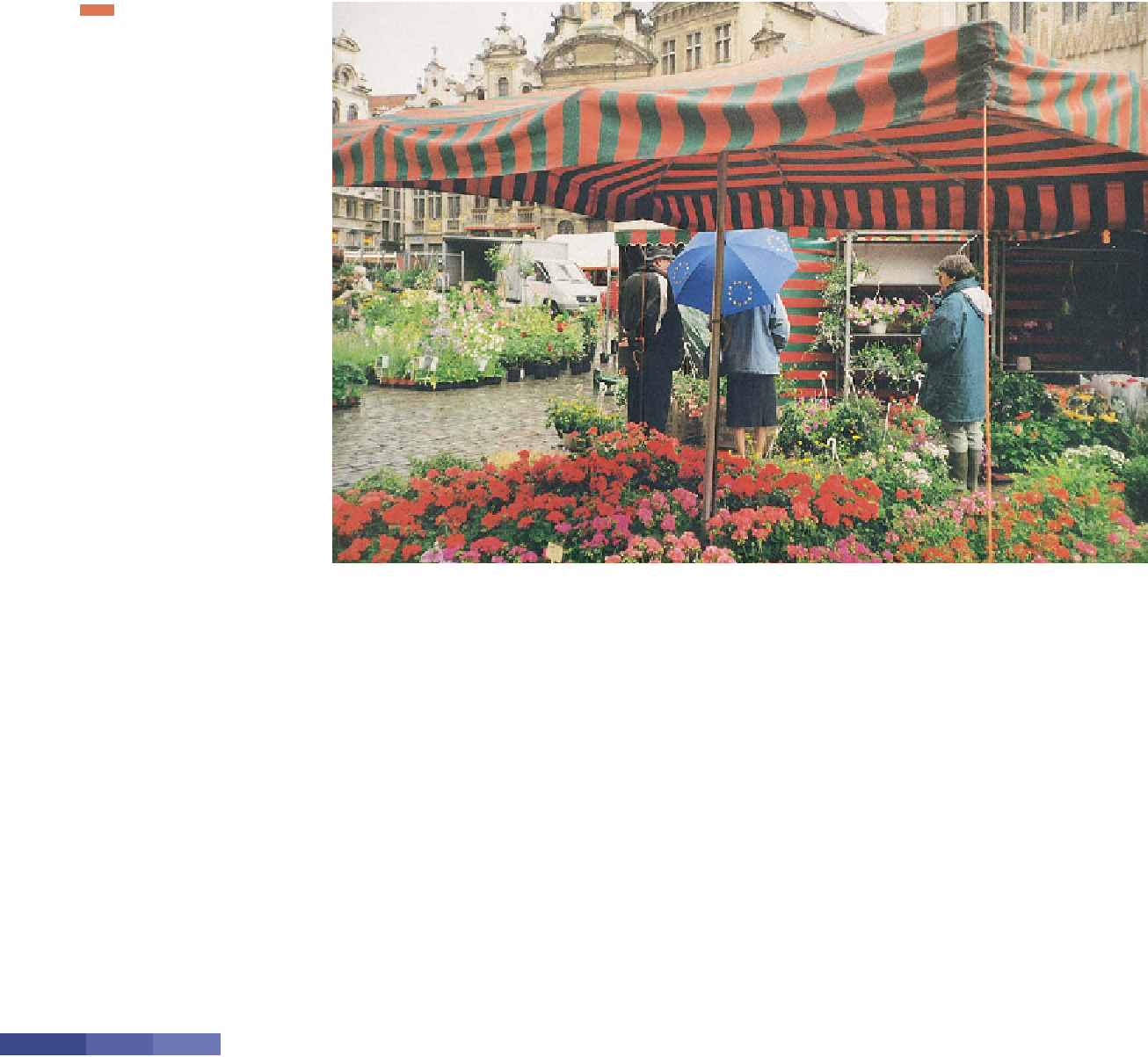Geography Reference
In-Depth Information
Figure 8.26
Brussels, Belgium.
A woman
with a European Union umbrella
shops in the fl ower market in
the Grande Place of Brussels.
Note that the fl ag of the
European Union has 12 stars,
which recognizes the 12 European
Community member states that
committed to becoming the
European Union in 1992.
© Erin
H. Fouberg.
All of the foregoing processes are creating eco-
nomic, social, and cultural geographies that look less and
less like the map of states (Fig. 8.3). The term
deterrito-
rialization
is sometimes used to describe these processes
because globalization, networked communities, and the
like undermine the state's traditional territorial author-
ity. But the state is far from disappearing, and national-
ism continues to be a fundamental social force in the
world today. Indeed, in many instances. the state is mov-
ing to solidify control over its territory through a process
known as
reterritorialization
. For example, in response
to concerns over illegal immigration, some state borders
are becoming more heavily fortifi ed, and moving across
those borders is becoming more diffi cult. However one
views the balance between deterritorialization and reter-
ritorialization, the state of the geopolitical order is clearly
in fl ux. We appear to be headed toward a world in which
the spatial distribution of power is more complex than the
traditional map of states would suggest. Describing that
spatial distribution will be a challenge for geographers for
generations to come.
In 2004, the European Union welcomed ten additional states,
and in 2007, it welcomed two more. Examine the European
Union website (listed below in the Learn More Online section).
Read about the European Union's expansion and what is going
on in the European Union right now. Assess how complicated
it is for the European Union to bring together these many
divergent members into one supranational organization.
Summary
We tend to take the state for granted, but the modern state idea is less than 400 years
old. The idea and ideal of the nation-state have diffused around the globe in the wake of
colonialism and the emergence of the modern international legal order.
The state may seem natural and permanent, but it is not. New states are being rec-
ognized, and existing states are vulnerable to destructive forces. How long can this way
of politically organizing space last?












































